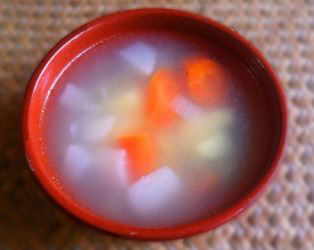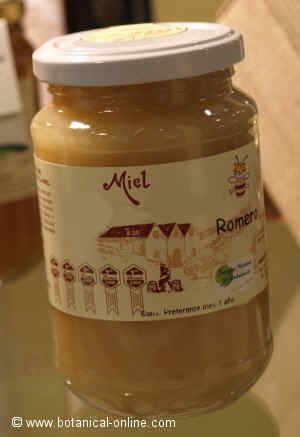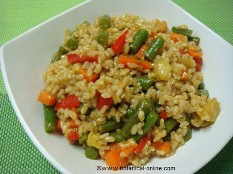Medicinal and edible properties of miso
What does miso contain?
Miso nutritional content can vary widely between each type of miso, depending on whether it has been made only with soy or other legumes, or if any cereal has been added.
In any case, it will have a high nutrient content, since, from the nutritional point of view, it is an excellent food product of high biological value.
It has an important micronutrient content and, in addition, due to the lactic acid it contains, it increases its availability.
Miso is very rich in proteins

Obviously, if we start from a miso made exclusively with soy or another legume, its protein content will be higher.
In addition, we must not forget that, when mixed with a cereal, we get an improvement in the supply of amino acids. Combining miso in cereal dishes provides the necessary amino acids to our body.
100g. of miso contain 11g. of protein, however, the amount of miso used in meals is usually less than about a teaspoon (10g.). For this reason, miso constitutes a protein booster, but it is not a sufficient contribution for a meal.
What other nutrients does miso provide?
The average nutritional content of miso stands out in the following components:
- A great contribution of enzymes: among which we find proteases, amylases and , with values that can reach 35%, which favor the digestion of food.
- High carbohydrate values: around 30% amounts.
- Levels below 20% fat: Of which the majority are mono and polyunsaturated, with beneficial effects for our body.
- Good concentration of vitamins and minerals: From minerals such as calcium, magnesium, potassium, phosphorus and iron, to vitamins, such as vitamin A, and vitamin E, and some vitamins of group B, as important as vitamin B9 (folic acid) and the niacin.
- It also contains a phospholipid called lecithin and phytosterols known mostly as isoflavones, from soybeans, which have a beneficial effect against cholesterol absorption.
- Isoflavones: they have an effect similar to hormones known as estrogens. These components may decrease in some cases the symptoms of menopause in some women.
Because of its contribution in proteins, minerals and enzymes, it will also have an appreciable improvement in the health of our hair, since it will be nourished from the inside. This food helps to have healthier hair, favoring its growth and helping to prevent its fall. At the same time, it helps fight other hair abnormalities such as dandruff, seborrhea or dry hair.
Whom is miso consumption recommended for?
- It is also recommended in cholesterol and heart disease, as miso plant sterols can help reduce the absorption of part of the “bad cholesterol” ingested.
- In cases of osteoporosis, weakness in bones and teeth, difficulty in the action of contraction and decontraction of the musculature, or even in continuous immobilization of long periods.
- It will also help the correct functioning of the nervous system , because of its vitamin B group content. This will favor the proper functioning of the brain (memory loss, nervousness, stress, etc
- In cases where an extra contribution of vitamin B is needed either due to weakness of the hair, skin and nails (fragile nails, sunken nails, stretch marks, etc)
- Because of its fiber content, it helps to counteract and eliminate harmful substances of our body and minimize its absorption. For example in case of chemical poisoning, food poisoning, natural oxidation, etc.
- Obviously, due to its probiotic effect, it will be recommended in cases where the immunity of our body needs to be increased or restored to normal and safe levels. Also in cases where our intestinal flora is adversely affected, either by antibiotic treatments, diarrhea, flatulence or constipation, even if the mucosa is irritated because of stomach acidity.
- In addition, it is also recommended in situations of malnutrition, since it improves the ability to assimilate food, in addition to regenerating the mucosa either at the stomach or skin level.
- Because of its content of isoflavones from soybeans, its consumption is recommended in women who are in the premenopausal period onwards, since it will help minimize the symptoms that this stage of life implies for all women.
- This food has a basifying effect on our body, preventing the acidification of our body and the harmful effects that this state causes.
Who should NOT take miso? Miso contraindications
- People with hypertension: You should evaluate the consumption of this food and control its intake in people who suffer or have a predisposition to have high blood pressure, due to its high sodium content.
- Patients with problems in metabolism: Its high sodium content also contraindicates it for people with uric acid, gout, arthritis, fluid retention, kidney problems or people who must follow a low salt diet.
- People with gluten allergy: should dispense with this condiment since it is very often made with soy, to which some cereals with gluten are added. It is not usually a food suitable for coeliacs.
![]() More information on miso and soy products
More information on miso and soy products








